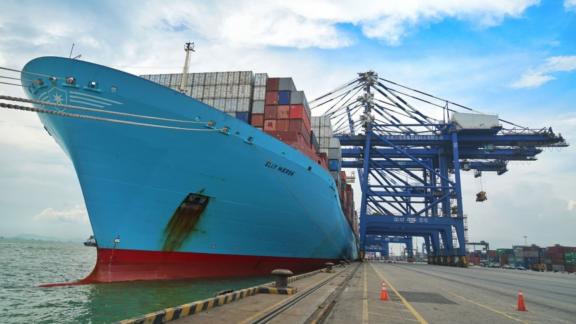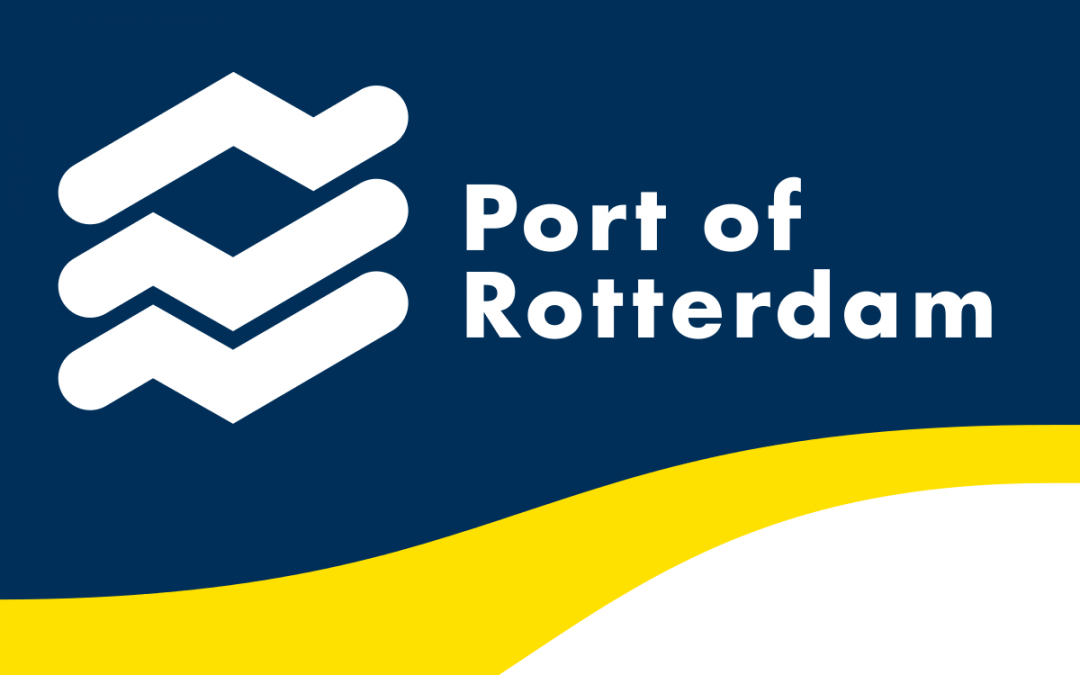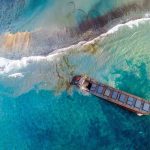Today, first-moving ports in Northern Europe and the Baltic Sea initiate an ambitious real climate action partnership with the Mærsk Mc-Kinney Møller Center for Zero Carbon Shipping. Together, they will build the foundation of the new European Green Corridors Network, which in its initial phase is set to establish green corridors in Northern Europe and the Baltic Sea.
The Mærsk Mc-Kinney Møller Center for Zero Carbon Shipping kickstarts this ambitious initiative with the Port Authorities of Gdynia, Hamburg, Roenne, Rotterdam, and Tallinn. The project will demonstrate the early commercialization of alternative fuel supply chains and provide a roadmap to scaling the supply chains and create a blueprint for rolling out green corridors in other locations. To achieve this, a phased approach has been planned:
• Pre-feasibility: Identify the potential routes, vessel types and fuels to establish high impact green corridors in the region.
• Feasibility: Assess the technical, regulatory & commercial feasibility of the shortlisted routes.
• Implementation: Implement the vision and establish green corridors in Northern Europe and the Baltic Sea.
Additional public and private stakeholders will be onboarded along the way, activating the full value chain needed to realize the vision. Green corridors have been recognized as a key enabler for shipping’s transition, and the consortium partners are proud to announce this initiative, which directly supports the Clydebank Declaration announced during COP-26 in Glasgow.
Bo Cerup-Simonsen, CEO of the Mærsk Mc-Kinney Møller Center for Zero Carbon Shipping, said: ‘This is a vital step towards accelerating the decarbonization of the shipping industry and meeting the EU’s 2030 climate ambitions. Developing green corridors are instrumental in activating industry first-movers across the value chain, and this project can be used as industry references to develop blueprints for new business models and identify the maritime industry’s interdependencies. It is truly fascinating to see a whole region and various stakeholders engaged in this. In addition, we hope this project will help facilitating the important work with maritime standards at the EU and IMO.’
Source: Port of Rotterdam
Valdo Kalm, CEO of Port of Tallinn, said: ‘Until recently, the maritime sector was the only transport sector in the EU not subject to greenhouse gas emission reduction targets. That time has passed, and the new reality has arrived: we must all work together to reduce CO2 emissions; there is no other way out. To achieve maritime sector decarbonization, zero-emission fuels and vessels must be deployed at scale over the next decade. It is undoubtedly a difficult task, but it can be aided by the formation of green corridors in which major ports provide the necessary zero-carbon fuels at the required scale for bunkering. Port of Tallinn is ready to step up and take the lead in providing next generation solutions for zero-emissions shipping at the same time supporting also the European Green Deal ambitions as well as the 2030 and 2050 goals enshrined in the EU Climate Law.’
Thomas Bendtsen, CEO of the Port of Roenne Authority, said: ‘The port of Roenne wants to play a key role in the green transition, and we are happy to engage in this ambitious partnership on developing green corridors with other central European ports. We are very much looking forward to this collaboration.’
Jens Meier, CEO of the Hamburg Port Authority, said: ‘Our goal is to push measures for decarbonization – not only within Hamburg but also beyond. Therefore, we engage for the use of alternative fuels in the port area as well as at sea.’
Allard Castelein, CEO of the Port of Rotterdam Authority, said: ‘The port of Rotterdam is very positive about this initiative, as projects like these are much needed, concrete steps towards zero emission shipping. It’s essential that shipping lines take the initiative to decarbonize their businesses, and that the ports assist them, for instance by making sure the right bunker infrastructure and regulations are in place in time. We will do what we can to make this European Green Corridors Network a success.’
Jacek Sadaj, President of the Managing Board at the Port of Gdynia, said: ‘The Port of Gdynia participates in initiatives focusing on developing a green hydrogen economy in Pomerania, which is part of the “green port” strategy. Green hydrogen is produced using energy from renewable sources and can play a significant role in the decarbonization of the maritime industry.’
Shipping’s roadmap to decarbonization
With 100.000 ships consuming around m300Tons fuel p.a. global shipping accounts for around 3% of global carbon emissions, a share that is likely to increase as other industries tackle climate emissions in the coming decades.
Achieving the long-term target of decarbonization requires new fuel types and a systemic change within the industry. Shipping is a globally regulated industry, which provides an opportunity to secure broad-based industry adoption of new technology and fuels.
To accelerate the development of viable technologies a coordinated effort within applied research is needed across the entire supply chain. Industry leaders play a critical role in ensuring that laboratory research is successfully matured to scalable solutions matching the needs of industry. At the same time, new legislation will be required to enable the transition towards decarbonization.
Source: Hellenic Shipping News






